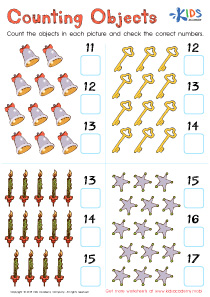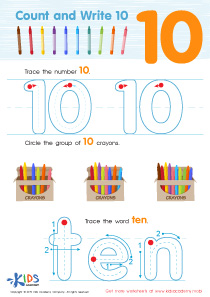Normal Comparing Numbers Worksheets for Ages 6-8 - Page 2
32 filtered results
-
From - To
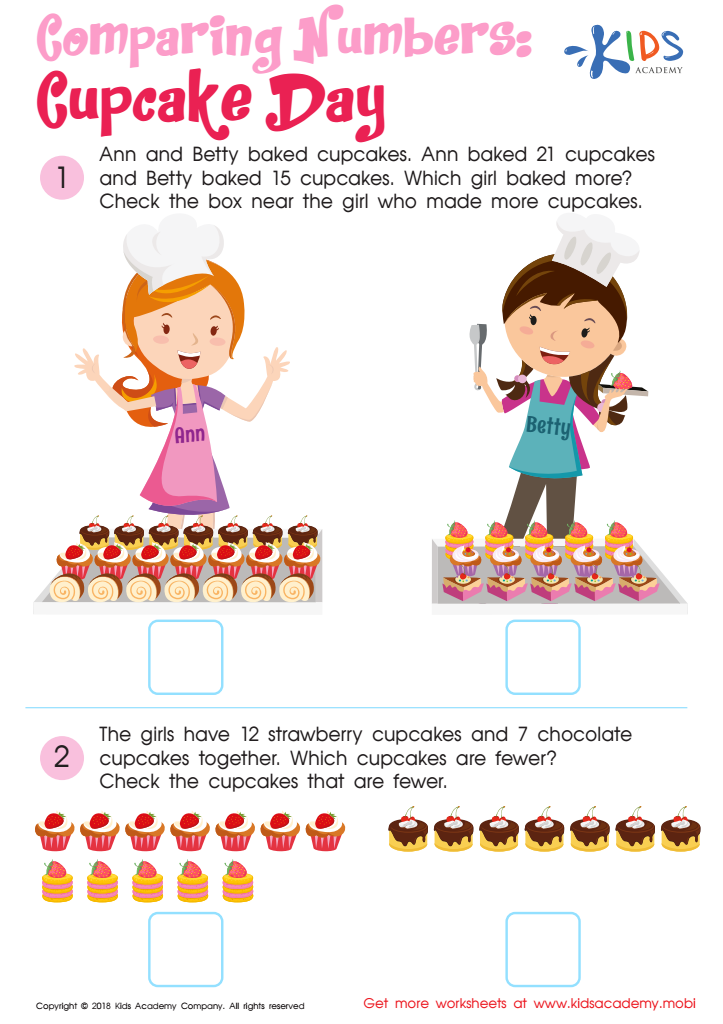

Cupcake Day Worksheet
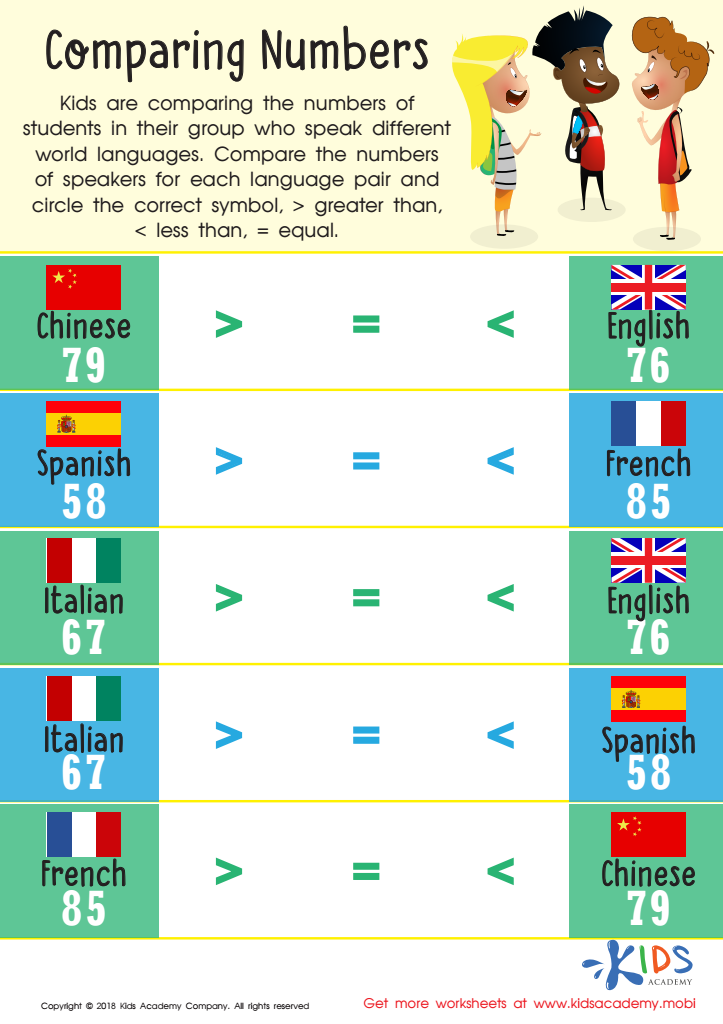

Comparing Numbers Worksheet for 1st Grade
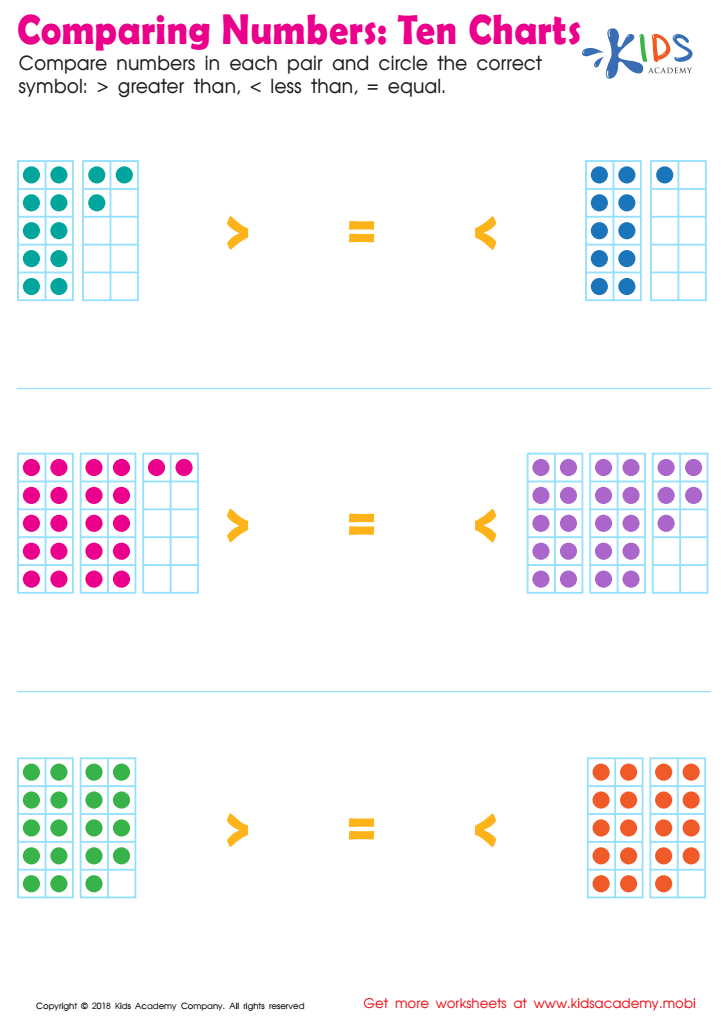

Ten Charts Worksheet
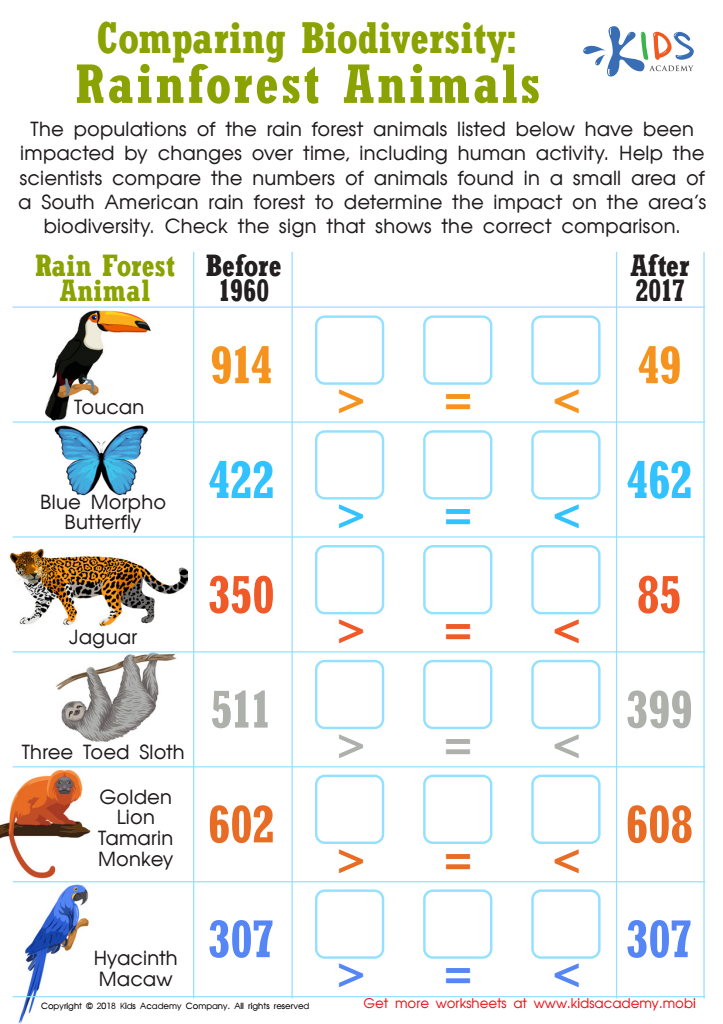

Comparing Biodiversity: Rainforest Animals Worksheet
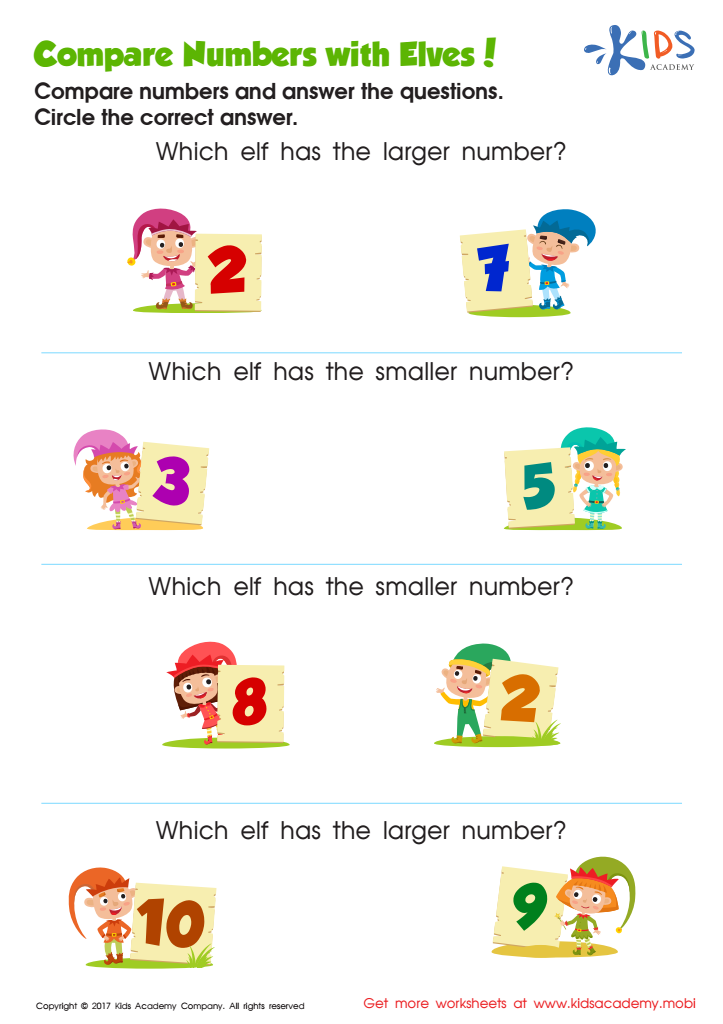

Comparing Numbers Worksheet for Kindergarten
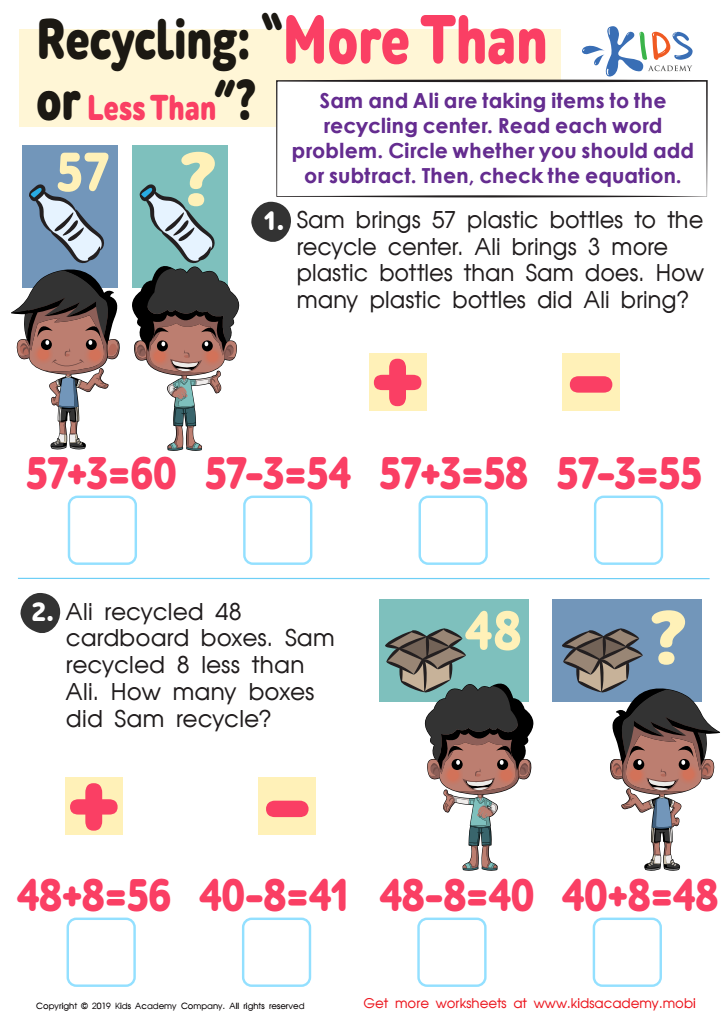

Recycling - More or Less Worksheet
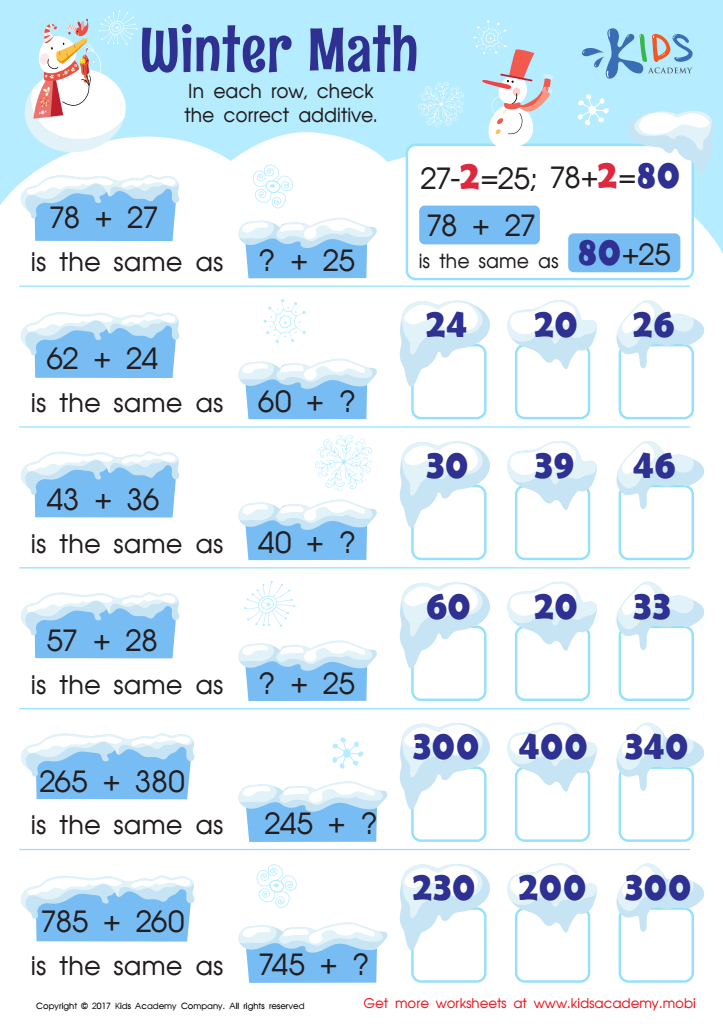

Free Addition Worksheet
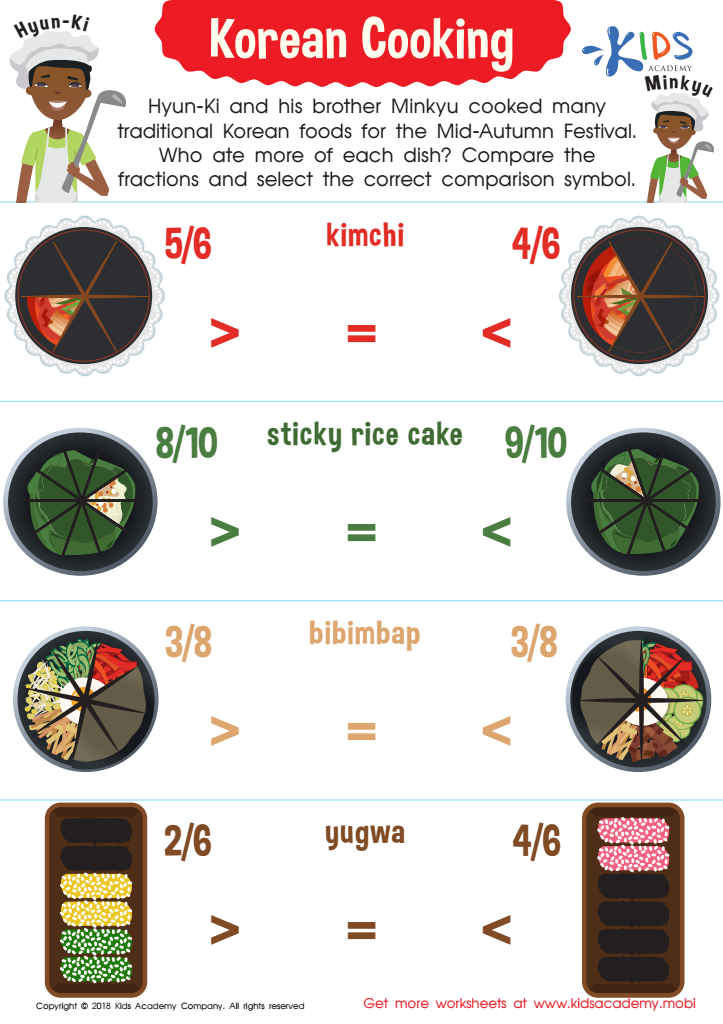

Korean Cooking Worksheet
Understanding normal comparing numbers, such as knowing which numbers are bigger or smaller, is a fundamental skill for children aged 6-8 and is crucial for several reasons. First, it establishes a strong foundation in mathematics that is essential for more complex problem-solving tasks. When children can compare numbers confidently, they also grasp other mathematical concepts such as addition, subtraction, and even early multiplication and division more easily.
Moreover, the ability to compare numbers sharpens critical thinking and decision-making skills. This skill encourages mental math, helping children understand which numbers are significant in real-life situations, such as comparing prices or scores in games. It fosters numerical literacy, equipping them to handle everyday situations more efficiently.
Additionally, focusing on comparing numbers helps cultivate a child's attention to detail and improves their concentration. Teachers and parents can use engaging activities like number games or interactive digital tools to reinforce these skills, making the learning process enjoyable and effective.
Finally, early math proficiency, including the ability to compare numbers, has been linked to better academic performance in later years. By emphasizing this fundamental skill, parents and teachers are helping to pave the way for a child's future success in not just math but across other disciplines that require logical and analytical thinking skills.
 Assign to My Students
Assign to My Students










